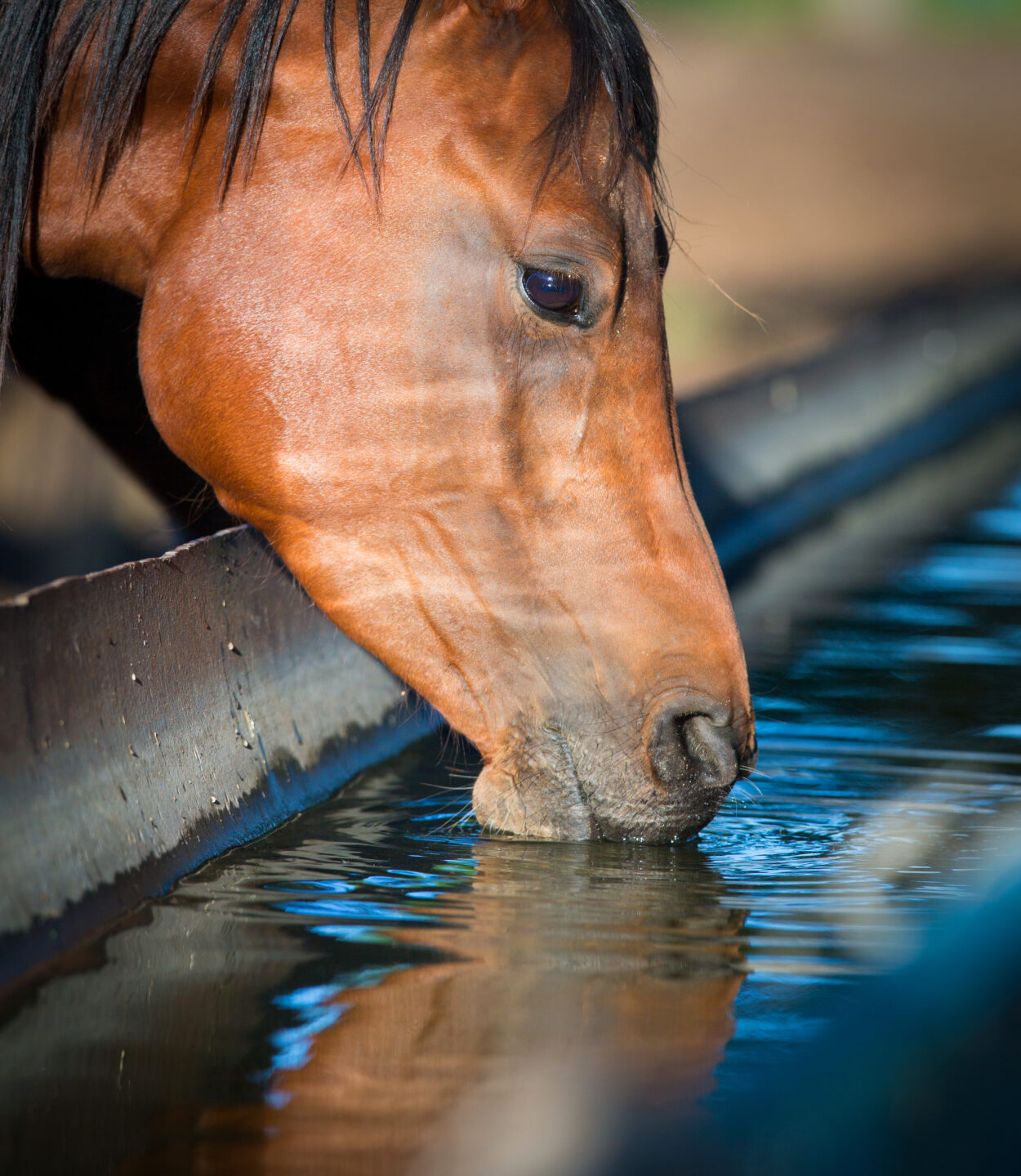Hydration In Horses: Drink Up! Keeping Your Horse Well Hydrated

Many regions of the country have been experiencing high heat and humidity this summer, so naturally, the concern of proper hydration comes to mind.
Reduced water consumption in horses may impair performance and increase the risk of impaction colic.
Additionally, horses may sweat more profusely, resulting in faster dehydration. So what’s a horse owner to do?
How Much Water Should Your Horse Consume?
The first key element is to make certain that horses have ready access to clean, palatable, cool water at all times or at very frequent intervals. Horses will normally consume about 1 gallon of water per 100 lbs body weight, so an 1100 lb horse will require a minimum of 11 gallons of water per day. This quantity can increase substantially during periods of exercise, high heat/humidity or for lactating mares.
Tips to Ensure Ample Water Intake To Maintain Hydration In Horses:
- Horses do not like to consume warm water in warm temperatures. Automatic waterers or large tanks, located in the shade and cleaned regularly, may be good options. If you supply water in buckets, you should clean them regularly and refill them regularly.
- If you are traveling to a show or other competition, it is essential to monitor water consumption, particularly if temperature conditions change.
- It is routine in many barns to flavor the water with something like wintergreen or peppermint at home so that you can flavor the water in new facilities to match the home water. Read here for tips on training your horse to drink water away from home.
- Do NOT use soft drinks or any material containing caffeine as these can trigger positive drug tests.
- Taking horses to facilities with chlorinated water can sometimes reduce water consumption without proper precautions.
Salt Consumption in Horses: Key Considerations
Ensuring salt is offered free choice is also key. Things to keep in mind for salt consumption in horses include:
- Horses require 1-2 ounces of salt per day, and this can increase to 6 ounces per day with exercise in hot weather conditions.
- Horses often consume loose salt more readily than salt blocks.
- When evaluating the total diet for salt consumption, commercial feeds normally contain 0.5-1.0% salt. It is not typically any higher than this, due to problems with palatability.
- If a horse is bored or has been salt deficient, it may over-consume salt while in a stall.
- Horses may have additional electrolytes, whether commercial or personal recipe, as per directions before, during, and following completion, but take care to ensure that the horses are drinking adequate water. Administering electrolytes to a horse that is not drinking properly, or allowing a horse to over consume salt without adequate water, can lead to electrolyte imbalances. Offer plain water along with electrolyte-added water.
Electrolytes and Hydration In Horses: Ensuring Balance in Summer and Competition
Horses need to be offered water throughout the day at a competition, and should be re-hydrated following exertion. They cannot cool out and recover properly without being re-hydrated. Keeping horses properly hydrated and maintaining electrolyte balance is extremely important in order to make a safe transition from cool temperatures to summer time and competition.
Ready to ensure your horse is getting the optimum nutrition at feeding time, every time? Find the perfect feed formulated specifically for horse’s needs with our Feed Selector Tool.
